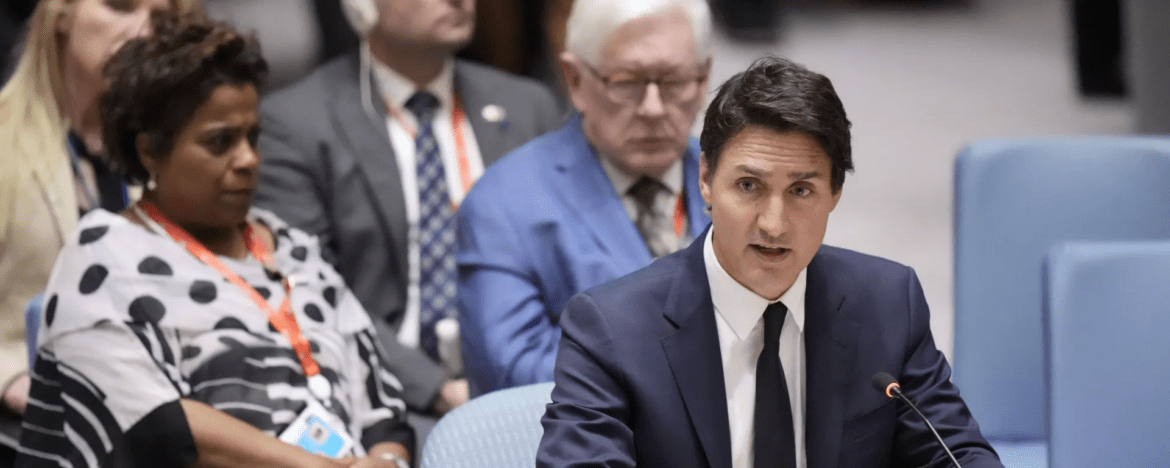AI Generated Summary
- For many Sikh Canadians, the latest controversy surrounding the killing of Hardeep Singh Nijjar and Trudeau’s rhetoric around Khalistani extremism is not just a political gambit—it’s a dangerous distraction that threatens the community’s relationships and the broader national interest.
- Whether it’s the blackface incidents that exposed his troubling past, the SNC-Lavalin affair that cast a shadow over his ethical compass, or his luxurious vacations that reinforced perceptions of entitlement, the list is long.
- The murder of Hardeep Singh Nijjar is tragic, and justice must prevail—but using it as a political pawn is not the solution.
Canadian Prime Minister Justin Trudeau has, for years, positioned himself as the champion of diversity, an advocate for minorities, and a defender of global human rights. Yet, beneath the veneer of progressive ideals, his actions reveal a leader desperately maneuvering to maintain power at home, even if it means compromising Canada’s global standing. For many Sikh Canadians, the latest controversy surrounding the killing of Hardeep Singh Nijjar and Trudeau’s rhetoric around Khalistani extremism is not just a political gambit—it’s a dangerous distraction that threatens the community’s relationships and the broader national interest.
Since taking office, Trudeau has stumbled from one controversy to another. Whether it’s the blackface incidents that exposed his troubling past, the SNC-Lavalin affair that cast a shadow over his ethical compass, or his luxurious vacations that reinforced perceptions of entitlement, the list is long. His most recent divorce and accusations of leveraging Canada’s refugee system for political gains only add fuel to the fire. With each new scandal, Trudeau’s approval ratings have plummeted, and his position has become increasingly precarious.
In the face of these controversies, Trudeau has turned to a familiar tactic for embattled leaders: deflection. Maxime Bernier, leader of the People’s Party of Canada, aptly noted that Trudeau’s unyielding support for the Sikh separatist agenda isn’t an act of solidarity—it’s a political maneuver. His invocation of India’s alleged involvement in Nijjar’s death, without providing substantial evidence, reads more like a ploy to rally Sikh voters and other minority communities crucial to his electoral success rather than a genuine stand for justice.
For Sikhs in Canada, this should be a wake-up call. While it’s true that our community has faced its share of injustices, the Khalistan movement is not representative of Sikhs at all. By amplifying this issue and playing into separatist narratives, Trudeau risks further dividing our community. Even more troubling, his actions could harm Canada-India relations, jeopardizing trade, diplomacy, and cooperation in areas vital to our economy and multicultural fabric.
K.K. Sharma, a naval veteran and political expert, recently warned that Trudeau’s stance might be a calculated move to secure ethnic minority votes, particularly in key electoral districts. However, this tactic comes with significant risks. India’s sensitivity to Khalistani separatism is well-documented, and Trudeau’s public positioning has already stirred diplomatic tensions. If he continues down this path, the fallout won’t just be limited to strained bilateral relations; it could have ripple effects on Canada’s economic partnerships, cooperation in international forums, and our broader reputation as a fair mediator on the global stage.
As a Sikh Canadian, I know our community’s value extends far beyond political calculations. We are not monolithic, and our interests cannot be boxed into support for any single issue. While many of us appreciate the Prime Minister’s emphasis on diversity and inclusion, it’s clear that aligning himself with a divisive agenda only serves to exploit our community’s votes, not champion our needs. The murder of Hardeep Singh Nijjar is tragic, and justice must prevail—but using it as a political pawn is not the solution.
Western leaders, as Sharma rightly pointed out, often pivot to issues in the Global South when their domestic approval wanes. Whether it’s Trudeau’s spotlight on India or Joe Biden’s stances on other international conflicts, the strategy is clear: divert the public’s attention away from homegrown failures by projecting strength abroad. While this might yield short-term gains, it comes with the risk of deepening perceptions of Western opportunism and interventionism. It also undermines the genuine aspirations of communities like ours, reducing them to mere chess pieces in a political game.
Trudeau’s stance on Khalistan, framed as an act of support for human rights, could easily be perceived as Canada meddling in India’s internal affairs. Such moves not only strain diplomatic ties but could also contribute to a broader distrust of Western intentions in multilateral forums. If Canada continues to play politics with such sensitive issues, it risks fostering a hostile stance from countries in the Global South—nations we should be engaging constructively and fairly.
Sikh Canadians must advocate for the community’s interests and recognize when those interests are being manipulated for political gain. Trudeau’s recent behavior is a reminder that politicians, even those who brand themselves as allies, often have ulterior motives. The real test of leadership isn’t standing with a group when it’s politically convenient; it’s working toward unity, justice, and progress for all Canadians, even when it doesn’t guarantee votes.
Trudeau’s gamble with the Sikh community and the Khalistan issue might secure him some temporary support, but it’s a short-sighted and ultimately dangerous strategy. If he truly wants to champion diversity and inclusivity, he must recognize that playing identity politics is not the way forward. It’s time for a Canadian leadership that values genuine relationships—both at home and abroad—over fleeting electoral gain. For the sake of our community and Canada, I hope Trudeau takes heed before it’s too late.
The opinions expressed in this article are those of the author. They do not purport to reflect the opinions or views of Khalsa Vox or its members.




